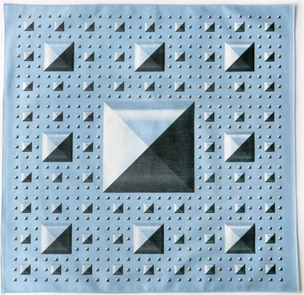“Amegbeto” signifies human in Ewe, a West African language spoken in Togo, Ghana, Benin, and Ivory Coast. Translated literally, “ame” means the person, “gbe” means to refuse, and “eto” means the house or the father. Therefore, in Ewe, human implies “the person who refused the house” or “the person who refused their father.”
This foundational myth in Ewe culture invites us to explore concepts such as territory, home, heritage, migration, and initiatory journeys.
Presented from the feminine author’s perspective and proposed as the central concept of the eponymous artist’s book series, the myth “amegbeto” serves as a resource.
The zine Amegbeto #002, titled “Here Doesn’t Take Place,” showcases a collection of photographs, zooming in and out to highlight various selected details of Ewe, Kotokoli, and Kabye traditional dressing styles, during the 2017 annual Kpodji high school feast day in Kpalime (Togo). During this event, pupils wear their traditional clothes.
This edition of Amegbeto focuses on the sense of place.



















![Protect Me From What I Want Wooden Postcard [Gold Text]](https://d23eqwv5slm408.cloudfront.net/api/file/1rE09CiPQpGMa3jDySHP/convert?fit=max&h=480&w=304&compress=true&fit=max)
![Words Tend To Be Inadequate Wooden Postcard [Gold Text]](https://d23eqwv5slm408.cloudfront.net/api/file/HhtS8vASTpWSUA41En0s/convert?fit=max&h=480&w=304&compress=true&fit=max)


![All Things are Delicately Interconnected Wooden Postcard [Gold Text]](https://d23eqwv5slm408.cloudfront.net/api/file/muHR6MdRL6EgJe6ATC1m/convert?fit=max&h=480&w=304&compress=true&fit=max)



![Protect Me From What I Want Wooden Postcard [Red Text]](https://d23eqwv5slm408.cloudfront.net/api/file/xKZZfpWNQRChHZkrFntw/convert?fit=max&h=480&w=304&compress=true&fit=max)
![All Things are Delicately Interconnected Wooden Postcard [Silver Text]](https://d23eqwv5slm408.cloudfront.net/api/file/Omkx9rurTfKoRgqObG5L/convert?fit=max&h=480&w=304&compress=true&fit=max)

![All Things Are Delicately Interconnected Wooden Postcard [Red Text]](https://d23eqwv5slm408.cloudfront.net/api/file/C6N6ppL6SnKYeXJuCtbd/convert?fit=max&h=480&w=304&compress=true&fit=max)









![In a Dream You Saw a Way to Survive and You Were Full of Joy Wooden Postcard [Black Text]](https://d23eqwv5slm408.cloudfront.net/api/file/WEd4Y05lROcLsySIoRfJ/convert?fit=max&h=480&w=304&compress=true&fit=max)
![Lack of Charisma Can Be Fatal Wooden Postcard [Red Text]](https://d23eqwv5slm408.cloudfront.net/api/file/KMt0MXg2QV6BBtFafHlT/convert?fit=max&h=480&w=304&compress=true&fit=max)
![Thee Almighty & Insane: Chicago Gang Business Cards from the 1970s & 1980s [Third Edition]](https://d23eqwv5slm408.cloudfront.net/api/file/LkZ8Y1wnSQNAHOeIsZ2Q/convert?fit=max&h=480&w=304&compress=true&fit=max)
![The Breakdown Comes When You Stop Controlling Yourself and Want the Release of a Bloodbath Wooden Postcard [Black Text]](https://d23eqwv5slm408.cloudfront.net/api/file/Yq72qCUcTzenjZPmDHHH/convert?fit=max&h=480&w=304&compress=true&fit=max)
![Raise Boys and Girls the Same Way Wooden Postcard [Red Text]](https://d23eqwv5slm408.cloudfront.net/api/file/uV8m1BsaQ6OCflSE578g/convert?fit=max&h=480&w=304&compress=true&fit=max)
![Money Creates Taste Wooden Postcard [Black Text]](https://d23eqwv5slm408.cloudfront.net/api/file/FDyWtNrERsKaawMR4dY8/convert?fit=max&h=480&w=304&compress=true&fit=max)















![2025 Slingshot Spiral Desk Organizer [Large]](https://d23eqwv5slm408.cloudfront.net/api/file/ZgnUiIyGQvCJckBO913B/convert?fit=max&h=480&w=304&compress=true&fit=max)
![2025 Slingshot Spiral Organizer [Small]](https://d23eqwv5slm408.cloudfront.net/api/file/KZ7ZLJgxSUOwmKWv37hA/convert?fit=max&h=480&w=304&compress=true&fit=max)







![Blue Moon Ari Marcopoulos T-Shirt [X-LARGE]](https://d23eqwv5slm408.cloudfront.net/api/file/uSvA0LwzRlC8ZekANYmI/convert?fit=max&h=480&w=304&compress=true&fit=max)
![Blue Moon Ari Marcopoulos T-Shirt [LARGE]](https://d23eqwv5slm408.cloudfront.net/api/file/RVRQRVnRQtujs9DmAyCs/convert?fit=max&h=480&w=304&compress=true&fit=max)
![Blue Moon Ari Marcopoulos T-Shirt [MEDIUM]](https://d23eqwv5slm408.cloudfront.net/api/file/v9V1Mlb3RfSvN9glBNMt/convert?fit=max&h=480&w=304&compress=true&fit=max)
![Blue Moon Ari Marcopoulos T-Shirt [SMALL]](https://d23eqwv5slm408.cloudfront.net/api/file/qtNAgHVcRaqHCzkAx5B2/convert?fit=max&h=480&w=304&compress=true&fit=max)
![2025 Slingshot Organizer [Pocket Classic]](https://d23eqwv5slm408.cloudfront.net/api/file/TvyPY1HQySS4aIlgwaK2/convert?fit=max&h=480&w=304&compress=true&fit=max)
